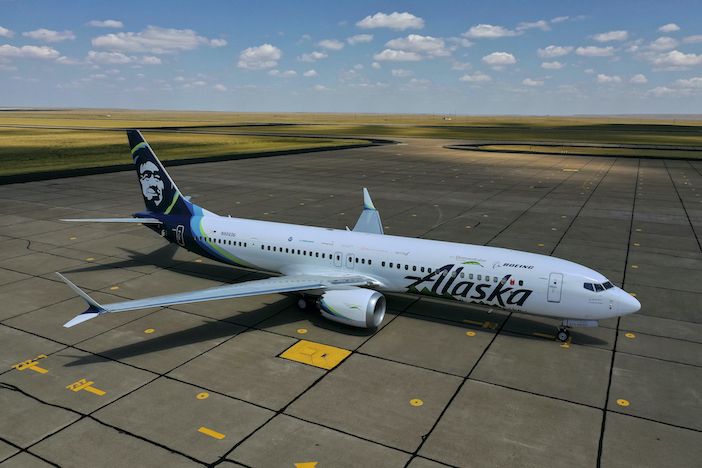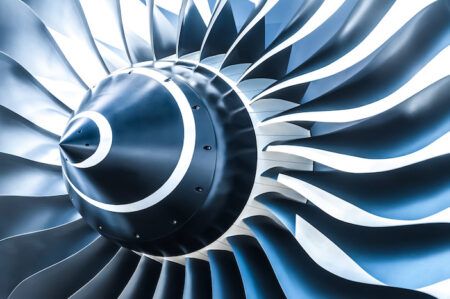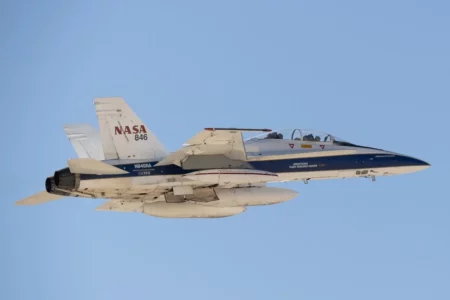Boeing has started flight trials of Inmarsat’s Iris system, which uses satellite-links to enable digital communications over datalinks that could improve aircraft flights to reduce their environmental impact.
The trials are being conducted as part of Boeing’s 2021 ecoDemonstrator program in partnership with Alaska Airlines using a 737-9 aircraft. The EcoDemonstrator program flight tests new technologies on a new aircraft each year which could improve the environmental sustainability of aviation.
Inmarsat’s Iris system will be assessed for its air traffic control and operational communications capabilities on the flights. The flights are the first time Iris, which uses Inmarsat’s ELERA satellite network, has been trialed outside of Europe.
The flights are using equipment, terminals and routers from Iris partners including Honeywell and Cobham.
Iris enables real-time collaboration between pilots, air traffic controllers and an airline’s operation centre using datalink communications. According to Inmarsat, the Iris system will deliver benefits such as reductions in fuel usage, environmental impact and flight delays by enabling the the shortest available routes to be calculated, determine flight trajectories and cruise at optimum altitudes, while also receiving the latest digital information, such as weather updates.
The ecoDemonstrator flights will also test for the first time ATN/IPS (Aeronautical Telecommunication Network using Internet Protocol Suite) satellite communications into Iris. ATN / IPS satellite communications are currently being finalized as the global standard for air traffic control communications to and from aircraft.
John Broughton, Inmarsat’s senior vice president of aircraft operations and safety services, said, “The Iris program is a great example of the vast benefits a digitized aviation industry will offer. By modernising air traffic management, there is significant potential to drive environmental efficiencies and cut aviation’s carbon emissions.
Rae Lutters, ecoDemonstrator program manager at Boeing said, “We selected the Iris solution for testing, as it is closely aligned to our own commitment to reduce the environmental impact of modern aircraft. We are looking forward to evaluating Iris in a live flying environment and exploring the real-life impact such innovative technology could have when implemented on a global scale.”
The Iris program has been developed by Inmarsat in partnership with the European Space Agency (ESA) and is expected to rollout in Europe by 2023 and then on a global basis over the next decade.





